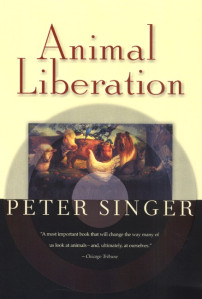Singer’s Zinger
While editing Kenneth Samples’ forthcoming book on Historic Christianity’s Dangerous Ideas (working title, Baker, 2012) I discovered this “gem” from Princeton bioethicist Peter Singer:
“The notion that human life is sacred just because it is human life is medieval.”
For Christians accustomed to the distinguishing doctrine of the image of God (imago Dei), a negative, and justifiably angry reaction toward Singer—a fellow human being created in God’s image—is awfully tempting. Let’s try not venting the spleen for a bit.

On his home page (an FAQ page) at Princeton University one can find this exchange:
Q. I’ve read that you think humans and animals are equal. Do you really believe that a human being is no more valuable than an animal?
A. I argued in the opening chapter of Animal Liberation that humans and animals are equal in the sense that the fact that a being is human does not mean that we should give the interests of that being preference over the similar interests of other beings. That would be speciesism, and wrong for the same reasons that racism and sexism are wrong. Pain is equally bad, if it is felt by a human being or a mouse. We should treat beings as individuals, rather than as members of a species. But that doesn’t mean that all individuals are equally valuable—see my answer to the next question for more details.
In the next question he is asked whether faced with a choice of saving either a human or a mouse from a fire (no time for both), which would he choose. He says (paraphrasing now) almost always the human, but not because it is a member of the Homo sapiens species (i.e., something special), but rather that it can recall a past, live a present, and expect a future and therefore has more to lose than the mouse.
I don’t know how Singer would answer the question if it was posed “human infant or mouse” but I doubt that infants know much about the past, present, or future.
OK. Your spleen’s about had it. (Careful, though, Singer’s an advocate of ending world poverty, and thus appears to value human life.) As a secularist Singer’s obviously no fan of Christian doctrines, so how would you present yourself to him if you met him on a subway, in an airport, in a doctor’s waiting room, or wherever?
“Oh, hi, you’re the ‘culture of death’ guy.”
Uh, that might not work so well. Your thoughts?
Resources:
Here’s an article by Kenneth Samples on differences between humans and animals
https://www.reasons.org/how-humans-differ-animals
See Ken’s book, A World of Difference, chapter 10



